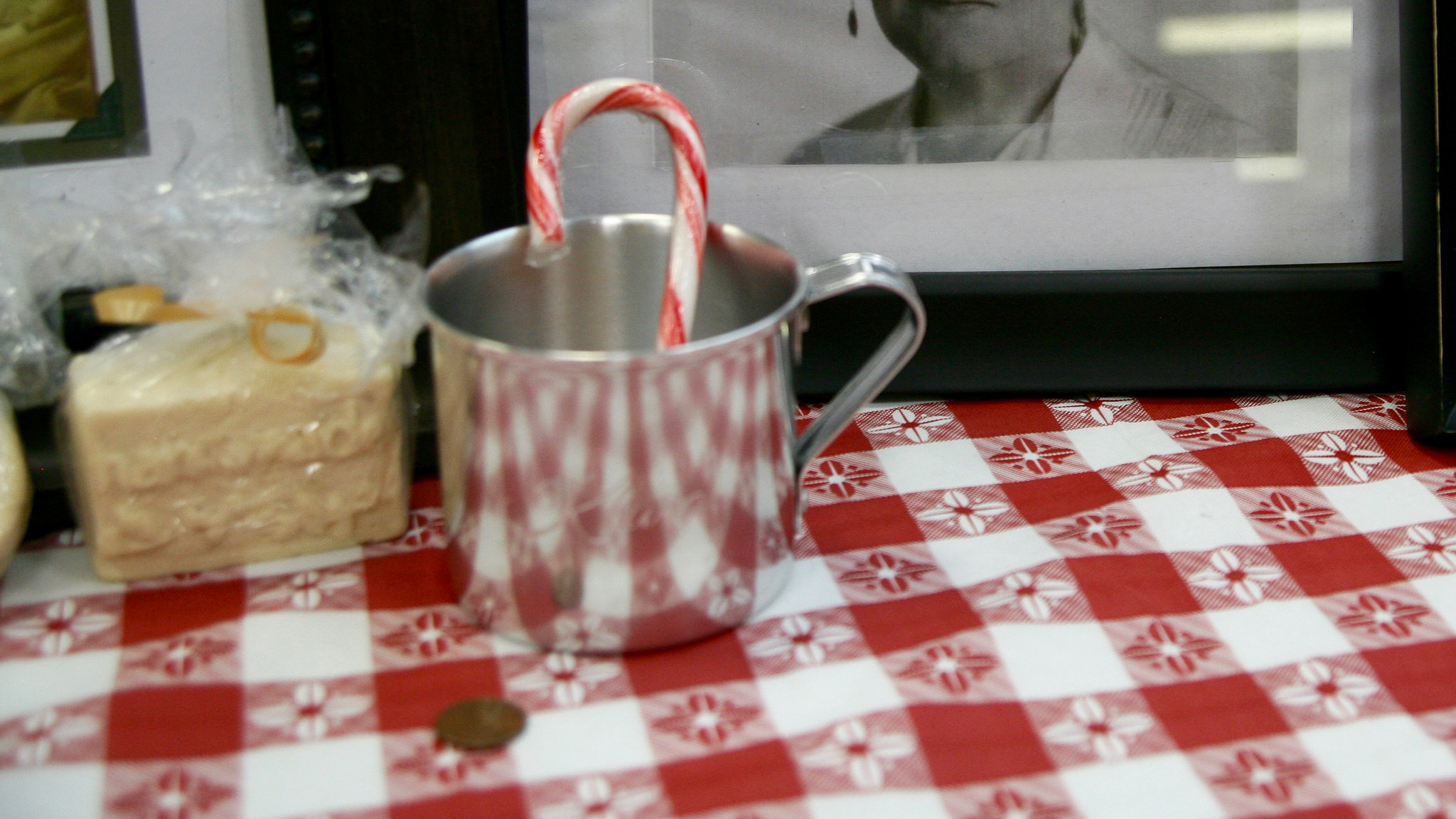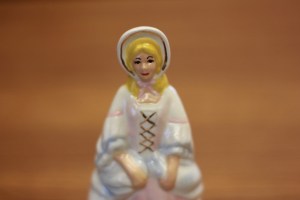Minimizing our belongings and organizing them is a growing concern. We know we have too much stuff and we know we need to do something about it. It’s easy to think that maybe we should let go of our material desires and just get rid of everything. I think that we should instead start to care more about our stuff, which should lead to having less of it.
As I read this article about the problem of too much stuff, there was one part that stood out for me:
The second you open your wallet to buy something, it costs you – and in more ways than you might think. Yes, of course there’s the price tag and the corresponding amount of time it took you to earn that amount of money, but possessions also cost you space in your home and time spent cleaning and maintaining them.
As I thought about it, I realized that it goes even deeper than the physical concerns – belongings also take up mental space. At the very least, you need to decide on the item’s future – where do you put it, how do you clean or maintain it – and all the other myriad questions that go running around in your head. Making all these choices is stressful, especially when they pile on top of each other, one for each thing that you own. And it’s not just a one-time thing – all these items become part of your daily life, pressing in on your consciousness, and you have to continue doing it until you finally choose to dispose of some stuff, and then you still have to decide what to get rid of and how. Sometimes it’s easier to buy a new house than to make the decisions, like this guy I read about in one of my favourite motorcycle ride reports:
A few years ago, a very good friend of ours bought a new house, a bigger one than the old one. I asked him why he needed such a big place for just him and his wife. He said he was running out of room for all of his stuff. When I helped him move, there were cardboard boxes with dates from over 15 years ago. I asked him what was in all the cardboard boxes. He said he didn’t know, but instead of opening them and going through the exercise of sell/donate/junk/keep, it was easier for them to buy a bigger house and just move the unopened boxes from place to place.
And I don’t know about you, but I always have a sense of guilt when I have to throw something out that hasn’t been fully used, another thing that takes up my mental energy, even if only a little. Having stuff is tiring. Clutter is even correlated with depression and stress, at least for women . And a lot of the clutter comes from stuff, that we do not actually care very much about.
We used to care about our stuff more. When I was young, I read the Little House on the Prairie books over and over and over again. One of the things that has stuck with me is their attitude towards their few belongings. I remember Ma’s precious possession, her little china shepherdess.
For Ma, that little shepherdess, most likely the kind of knickknack that we all have too many of cluttering our shelves today, was the possession that made her house a home. It was cherished.
And it wasn’t just the shepherdess. I remember too how in Little House on the Prairie the girls were so happy with Christmas presents that would have struck us as punishment if that was all we had received – an cake, a piece of candy, a tin cup and a penny made them ecstatic one year. When they got their tin cup, they were happy to finally each have their own. “Laura jumped up and down and shouted and laughed, but Mary stood still and looked with shining eyes at her own tin cup.” And the candy, “They looked and looked at the beautiful candy, and Laura licked her stick, just one lick. But Mary was not so greedy. She didn’t take even one lick of her stick.” And the cakes, “The cakes were too pretty to eat. Mary and Laura just looked at them” before Laura took a nibble, just one. And finally,
Laura and Mary never would have looked in their stockings again. The cups and the cakes and the candy were almost too much. They were too happy to speak. But Ma asked if there were sure the stockings were empty. Then they put their hands down inside them, to make sure. And in the very toe of each stocking was a shining bright, new penny! They had never even thought of such a thing as having a penny. Think of having a cup and a cake and a stick of candy and a penny. There had never been such a Christmas.
Back then, they had so little that every item they got was precious. And it’s still like that in poorer places, where even pens and paper are scarce. What they do get, they take care of, and they find uses for everything that comes their way. Belongings are important and have value.
And that is how it should be – we should value what we have and appreciate its place in our lives. We do not need to care less about our material belongings, but more. We need to realize that by acquiring things we are entering into a relationship with them, and decide up front whether it’s a relationship we’re interested in. It’s sort of like getting a pet – many people buy cute kittens and puppies and chicks for the moment without thinking that they should take care of an animal for its lifetime – we do that with so many belongings, just acquire them without thinking about how long they will be with us.
To help us value our possessions, we should ask ourselves some questions when we feel the urge to buy something, almost anything:
- How will it fit into our lives now until it’s time to let it go?
- Will it make our lives better in the time that it’s in it?
- Is it something that fills a unique need that is not being met by our other belongings? Really?
- Is it the right model for what I need? Do I need to do more research? Making sure a thing does everything we want it for can make it stay with us longer – maybe another model that does more, or less, would fit what we’re actually going to do with it better.
- Do we want to take on the responsibility for the thing for the whole time that it’s with us? Where in our house will it “live”?
- Is it a good use of resources?
- How long will we have it? How long will we want it?
- Will I still want it later? Tomorrow? Next week? Should I hold off buying to see? This can be really important – if you really want and need it, you’ll still want it after a delay. If you forget about it, it probably wasn’t that important after all.
- Where will it end up when we are done with it – will it find a new home? Will it be recycled? Or will it be trashed?
In other words, make absolutely sure that you want it for its entire lifetime. Because, after all, it’s a lot easier to be happy with what we have instead of always deciding what we have to get rid of. And if doing it this way means we end up with less stuff, well, then it’s a win-win, isn’t it?
Title image “History of Laura Ingalls Wilder” by Imagination Fair/Nic Rosenau under CC BY 2.0.




Perhaps instead of not caring about our stuff, we should care more about less of it.
https://t.co/LuO1jHnMhG
RT @HarmonyFolz: Perhaps instead of not caring about our stuff, we should care more about less of it.
https://t.co/LuO1jHnMhG
Pingback: 12 HEALTHY (AND SUSTAINABLE) HABITS THAT HAVE CHANGED MY LIFE | Travel for Difference